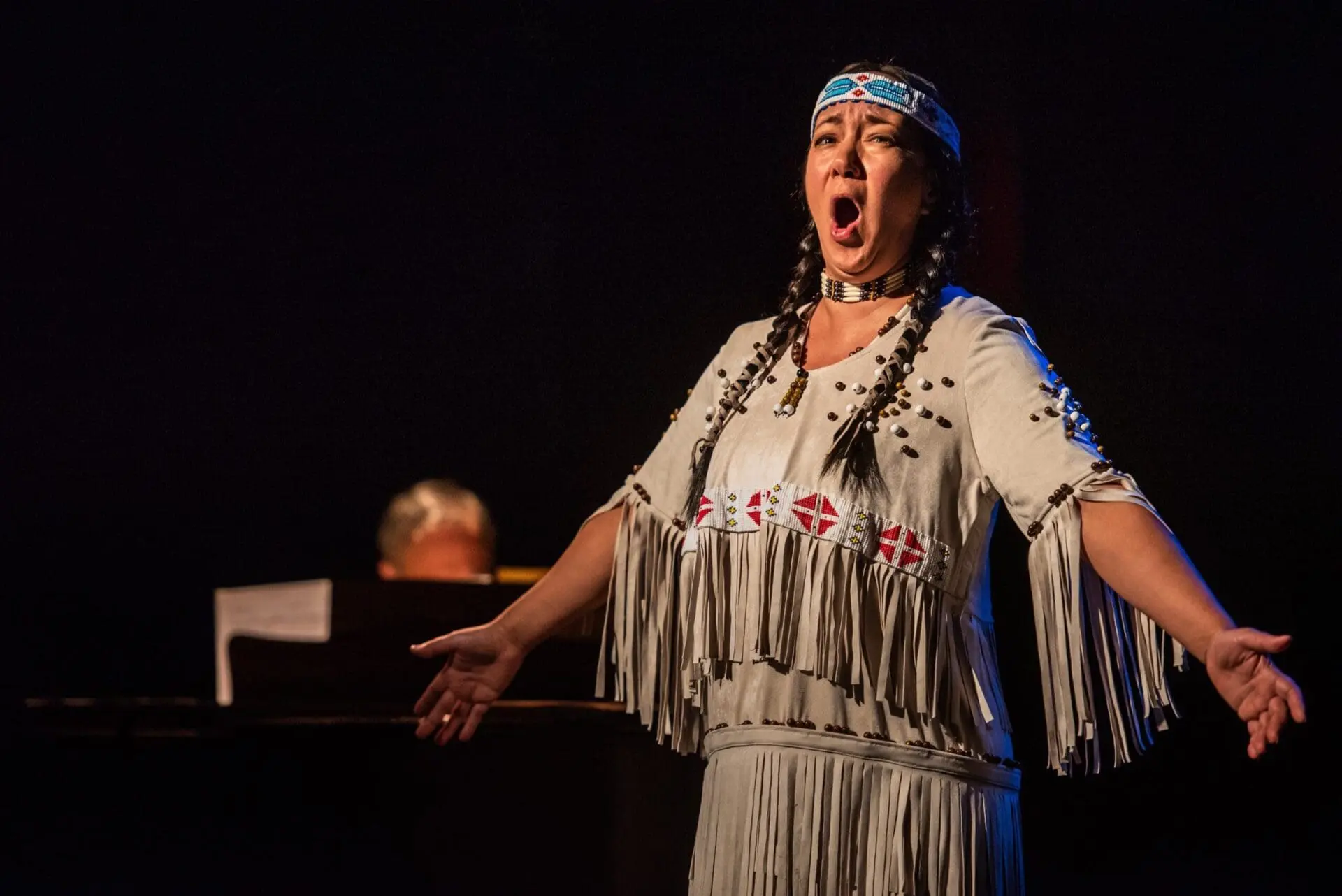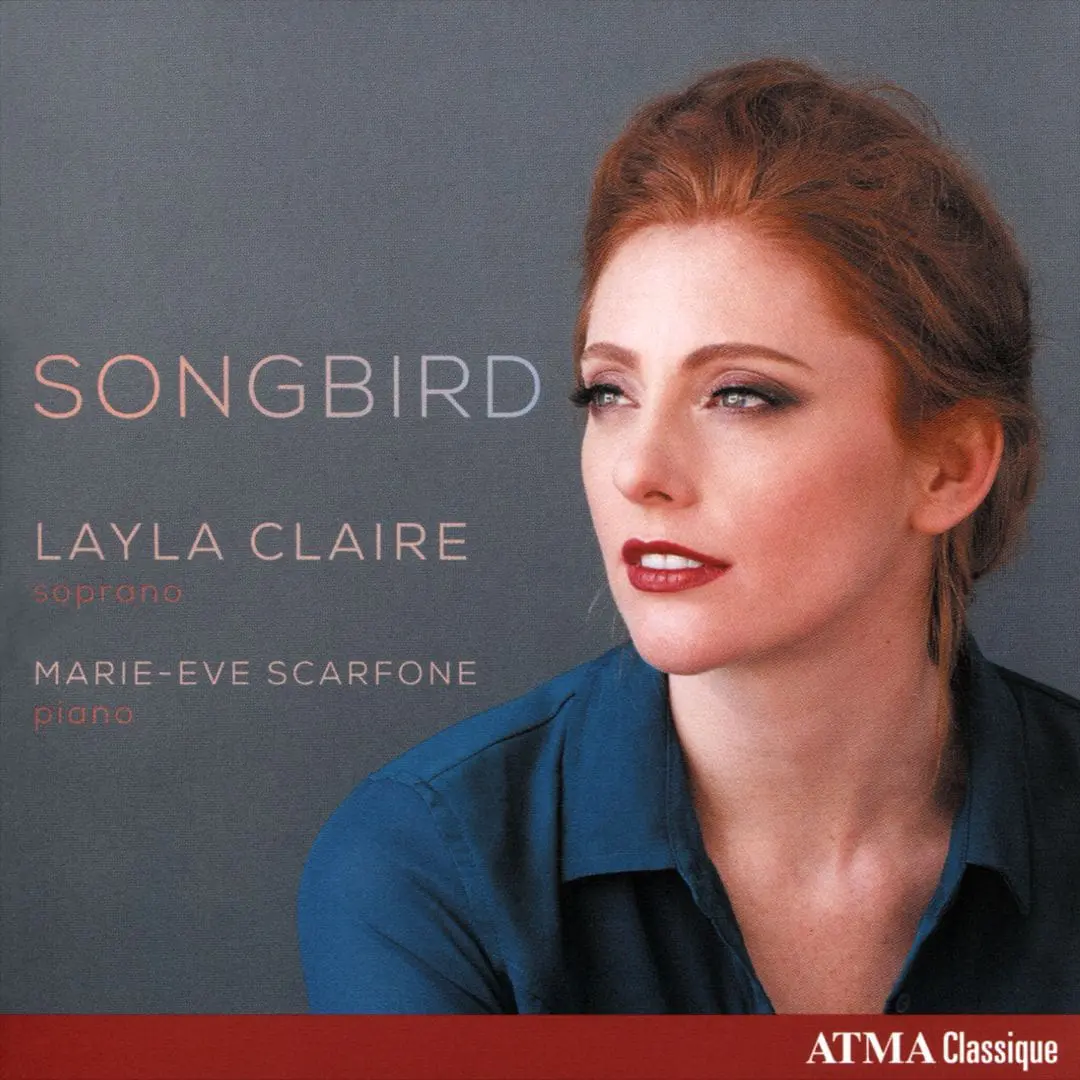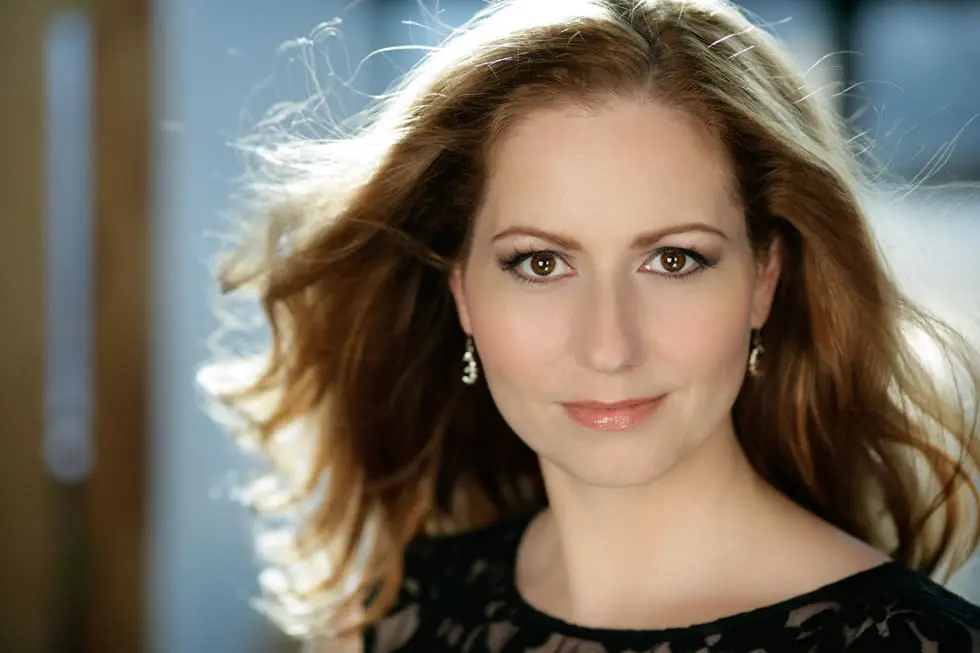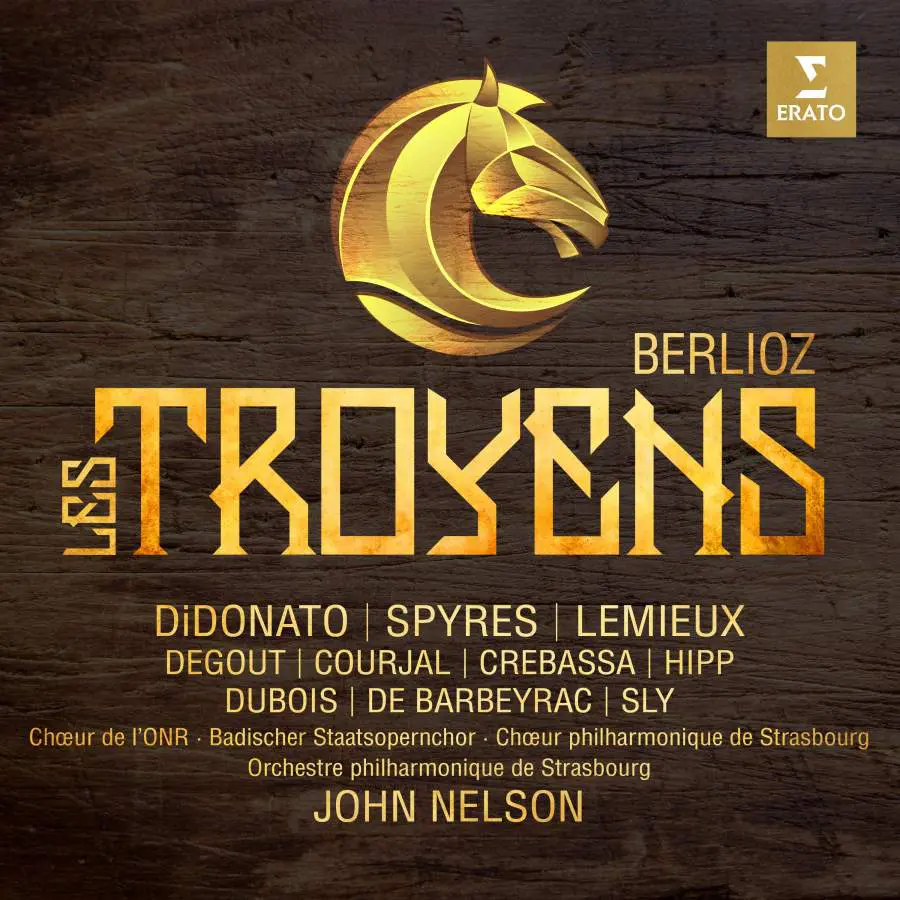Jani Lauzon’s I Call myself Princess (seen Sept. 13th) skilfully weaves together two stories. The first is the historical story of Charles Wakefield Cadman, an ‘Indianist’ composer of the early 20th century. Together with his professional partner, the Cherokee mezzo-soprano Tsianina Redfeather and their various accomplices, they endeavoured to create an American music incorporating elements gathered from Indigenous peoples. This culminated in an opera, Shanewis (The Robin Woman), that premiered at Metropolitan Opera in 1918. The second, fictional story deals with William Morin, an aspiring Métis tenor studying at the Royal Conservatory and his same sex partner.
The twin themes are cultural appropriation and the compromises that people from outside the mainstream must make to have their voices work at all. In the first half we see the stories play out in parallel as Morin is assigned to sing the tenor role in Shanewis in a Conservatory production that appals him. At the same time, we see the sixteen-year-old Tsianina being condescended to by the rich, white audiences she entertains with Cadman’s songs.

Richard Greenblatt (Charles Wakefield) and Marion Newman (Tsianina Redfeather) in I Call Myself Princess. Photo: Dahlia Katz.
Morin’s growing anger and despair summons up the spirit of Tsianina and they begin to share their stories and the justification for what they are doing. Slowly they come to the realisation that for the oppressed who want to preserve their culture and be heard, there are compromises. Those compromises are a function of time and place and it’s inappropriate to judge such decisions by the standards of another time and place. We see the “white” characters making similar compromises, though from a position of privilege. Cadman and his female librettist, Nelle Eberhart (Courtney Ch’ng Lancaster), really believe they are helping to preserve Indigenous culture, however heavy-handed their approach seems through a modern lens.
All of this might seem impossibly didactic were the stories not so well crafted and told with such a wicked sense of humour. There’s also some excellent acting and the staging, by Marjorie Chan, is full of movement. The singing, mostly Cadman’s songs, is also surprisingly good since aside from the excellent mezzo-soprano Marion Newman in the title role, the show is cast with actors who can sing rather than opera singers. Both Aaron Wells as Morin, and Howard Davis in multiple roles including Morin’s partner are excellent. Lancaster is very effective as Cadman’s librettist and in many other roles, both male and female. Richard Greenblatt is both a convincing Cadman and an effective pianist for the frequent musical numbers.

Howard J. Davis (Alex Park) and Aaron M. Wells (William Morin) in I Call Myself Princess. Photo: Dahlia Katz.
What might have been a crude critique of cringe-worthy cultural appropriation is anything but. Jani Lauzon has produced a well crafted, thought-provoking and very funny “play with music” that provides a really enjoyable evening of theatre. I Call myself Princess runs in the Aki Studio at Toronto’s Daniels Spectrum until Sept. 30th.
















